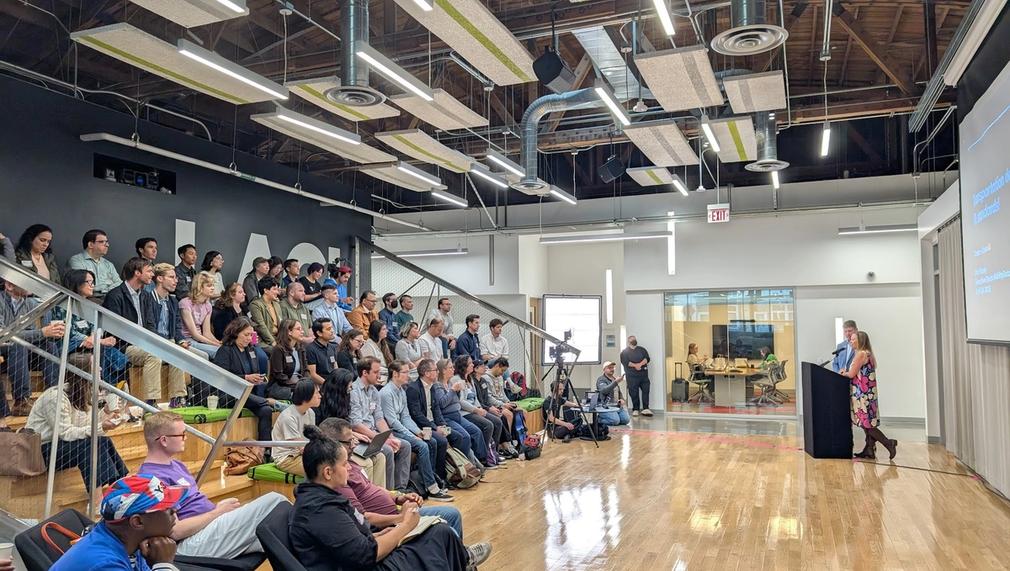LA Transit Data Community of Practice
The LA Transit Data Community of Practice is a new initiative uniting data teams from the county’s 27 distinct local transit agencies to enhance coordination, share tools, and improve the rider experience across the region. Based on feedback from local agencies, this grant will fund collaborative workshops and technical capacity building that helps agencies share data more effectively and coordinate planning, improving transit connectivity region-wide.

What is the primary issue area that your application will impact?
Public transit
In which areas of Los Angeles will you be directly working?
County of Los Angeles (select only if your project has a countywide benefit)
In what stage of innovation is this project, program, or initiative?
Pilot or new project, program, or initiative (testing or implementing a new idea)
What is your understanding of the issue that you are seeking to address?
Transit agencies face pressure to meet evolving rider expectations while competing with alternative mobility options. Data is a bright spot—enabling agencies to provide riders with better, more accurate arrival times and trip planning information—but this opportunity has also created new challenges.
FTA requires agencies to publish schedules in a standard format, called GTFS, used by Google and Apple maps. But many agencies lack the resources and expertise to produce high-quality data feeds. Real-time vehicle location data, which makes riders feel safer and more confident, also requires hardware and technical capacity.
Currently, there are insufficient resources for agencies to learn how to create quality rider data and address issues that arise in GTFS production. The needs are greatest at small agencies serving Los Angeles’s low-income communities. Data quality can be improved region-wide, providing all transit riders the access to reliable, accurate information that they deserve.
Describe the project, program, or initiative this grant will support to address the issue.
The LA Transit Data Community of Practice addresses technical capacity gaps by creating ongoing support for the county's 27 transit agencies. Compiler has worked on transit data quality for years, helping to develop California’s first-in-the-nation Transit Data Guidelines framework and also providing support for agencies seeking to meet those standards. Recently, we worked with partners at Caltrans and LA Metro to convene a pilot workshop for data professionals at local agencies. What we found was that there was both a need and a strong demand for collaborative learning, for spaces in which they can get questions answered and problems resolved.
The Community of Practice will host workshops for sharing best practices and troubleshooting technical issues, while also creating asynchronous channels for targeted technical assistance to help agencies improve GTFS feeds and address quality problems. This program will foster connections between local transit agencies and help move the region toward all transit vehicles providing precise arrival predictions.
Many agencies lack dedicated technical staff, often relying on overburdened operations personnel for specialized data requirements. By creating a community where agencies pool knowledge and resources, with a goal of achieving greater overall coordination in data production, we can help smaller agencies achieve quality standards difficult to reach independently.
Describe how Los Angeles County will be different if your work is successful.
The LA Transit Data Community of Practice centers on the idea that, by building up their ability to work together, LA’s transit agencies can provide riders with consistently accurate, reliable information no matter where they travel across our fragmented transit network. Locals and visitors (like those coming for the 2028 Olympic and Paralympic Games) alike can have an improved riding experience when high-quality and complete transit data informs their choices.
This program is an opportunity to pilot new engagement between agencies and then to address other regional challenges facing transit. By building capacity for agencies across a range of data products, LA County will receive more coordinated and efficiently planned transit.
Better data quality means better service for the low-income communities of color that most rely on transit. Better service is also key to growing transit ridership in the county. Success means transit becomes a more viable, attractive option for all Angelenos.
Approximately how many people will be impacted by this project, program, or initiative?
Direct Impact: 50
Indirect Impact: 100,000